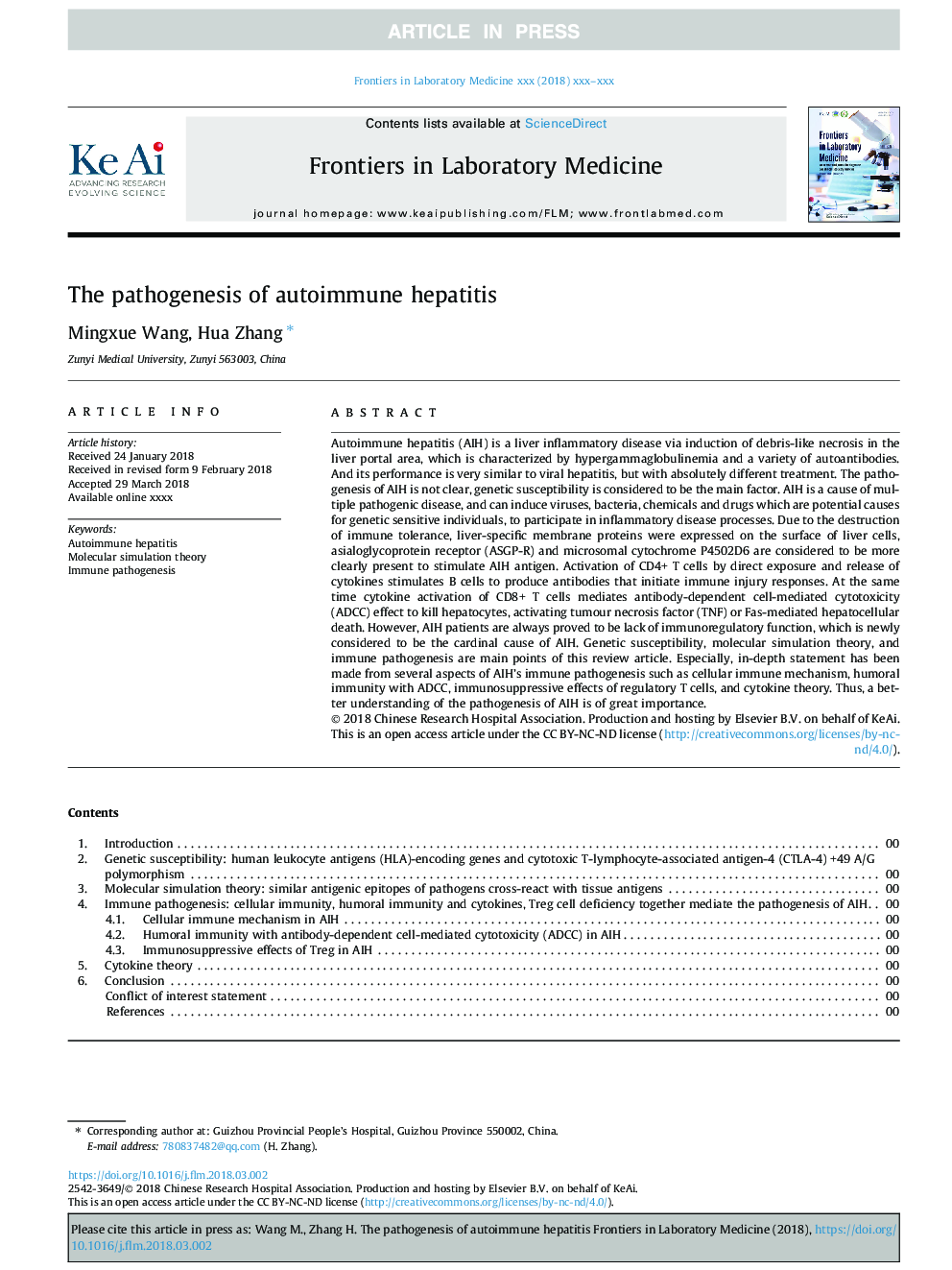| Article ID | Journal | Published Year | Pages | File Type |
|---|---|---|---|---|
| 8921787 | Frontiers in Laboratory Medicine | 2018 | 4 Pages |
Abstract
Autoimmune hepatitis (AIH) is a liver inflammatory disease via induction of debris-like necrosis in the liver portal area, which is characterized by hypergammaglobulinemia and a variety of autoantibodies. And its performance is very similar to viral hepatitis, but with absolutely different treatment. The pathogenesis of AIH is not clear, genetic susceptibility is considered to be the main factor. AIH is a cause of multiple pathogenic disease, and can induce viruses, bacteria, chemicals and drugs which are potential causes for genetic sensitive individuals, to participate in inflammatory disease processes. Due to the destruction of immune tolerance, liver-specific membrane proteins were expressed on the surface of liver cells, asialoglycoprotein receptor (ASGP-R) and microsomal cytochrome P4502D6 are considered to be more clearly present to stimulate AIH antigen. Activation of CD4+ T cells by direct exposure and release of cytokines stimulates B cells to produce antibodies that initiate immune injury responses. At the same time cytokine activation of CD8+ T cells mediates antibody-dependent cell-mediated cytotoxicity (ADCC) effect to kill hepatocytes, activating tumour necrosis factor (TNF) or Fas-mediated hepatocellular death. However, AIH patients are always proved to be lack of immunoregulatory function, which is newly considered to be the cardinal cause of AIH. Genetic susceptibility, molecular simulation theory, and immune pathogenesis are main points of this review article. Especially, in-depth statement has been made from several aspects of AIH's immune pathogenesis such as cellular immune mechanism, humoral immunity with ADCC, immunosuppressive effects of regulatory T cells, and cytokine theory. Thus, a better understanding of the pathogenesis of AIH is of great importance.
Related Topics
Life Sciences
Biochemistry, Genetics and Molecular Biology
Biotechnology
Authors
Mingxue Wang, Hua Zhang,
